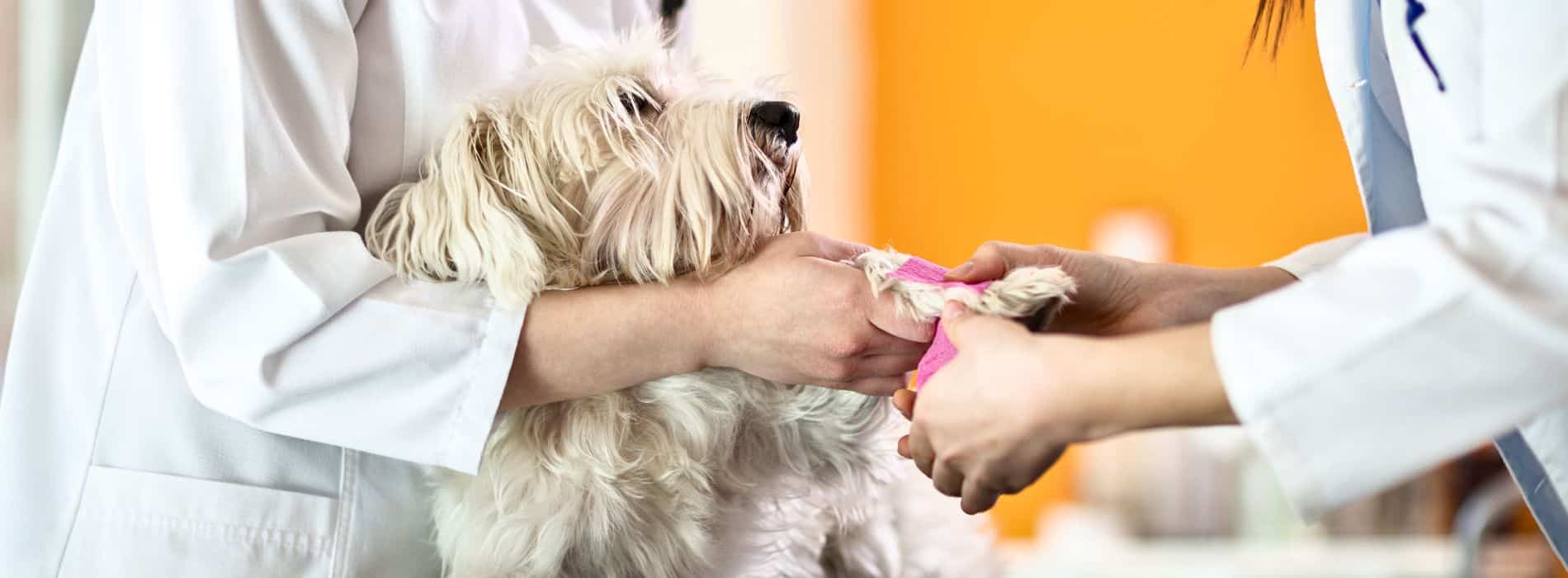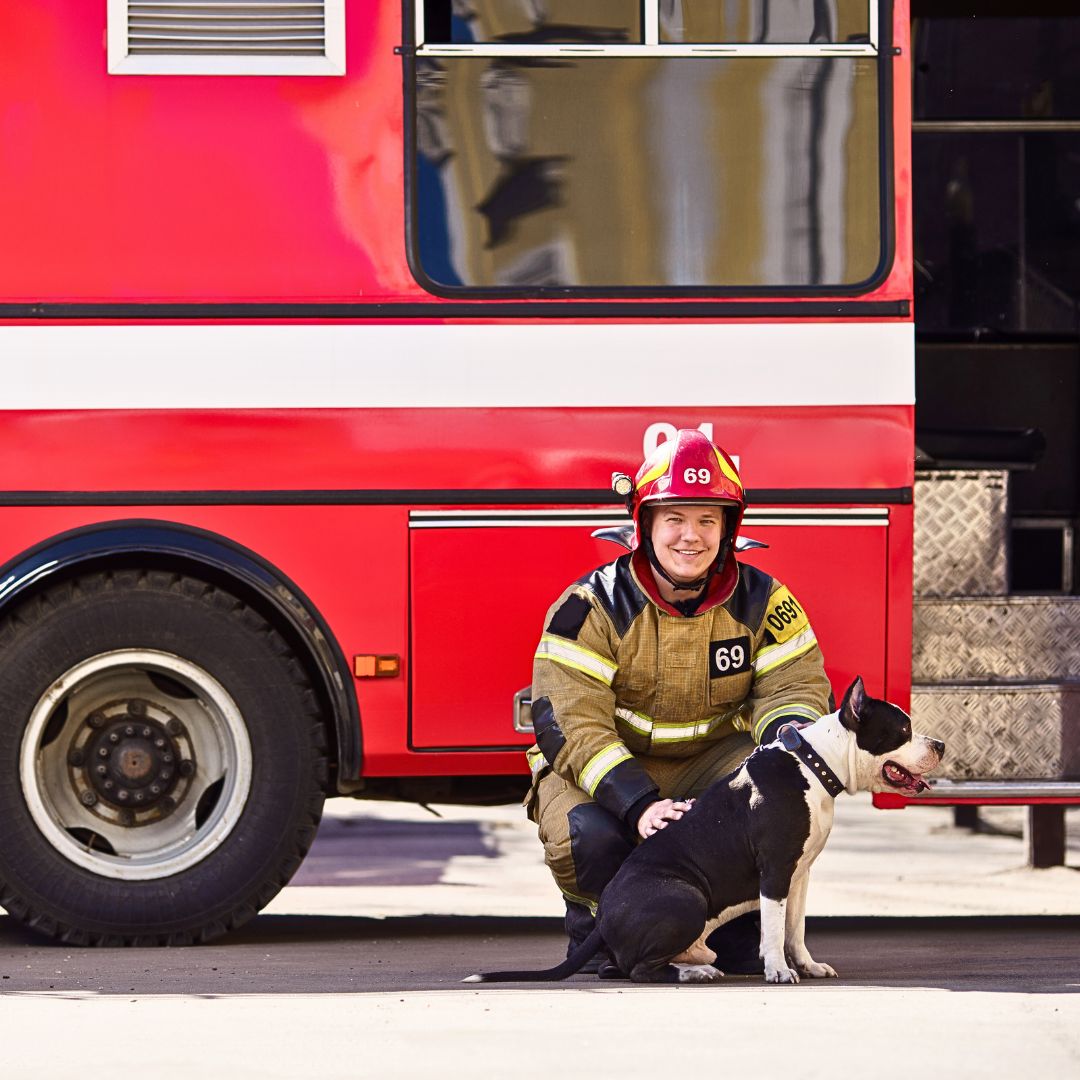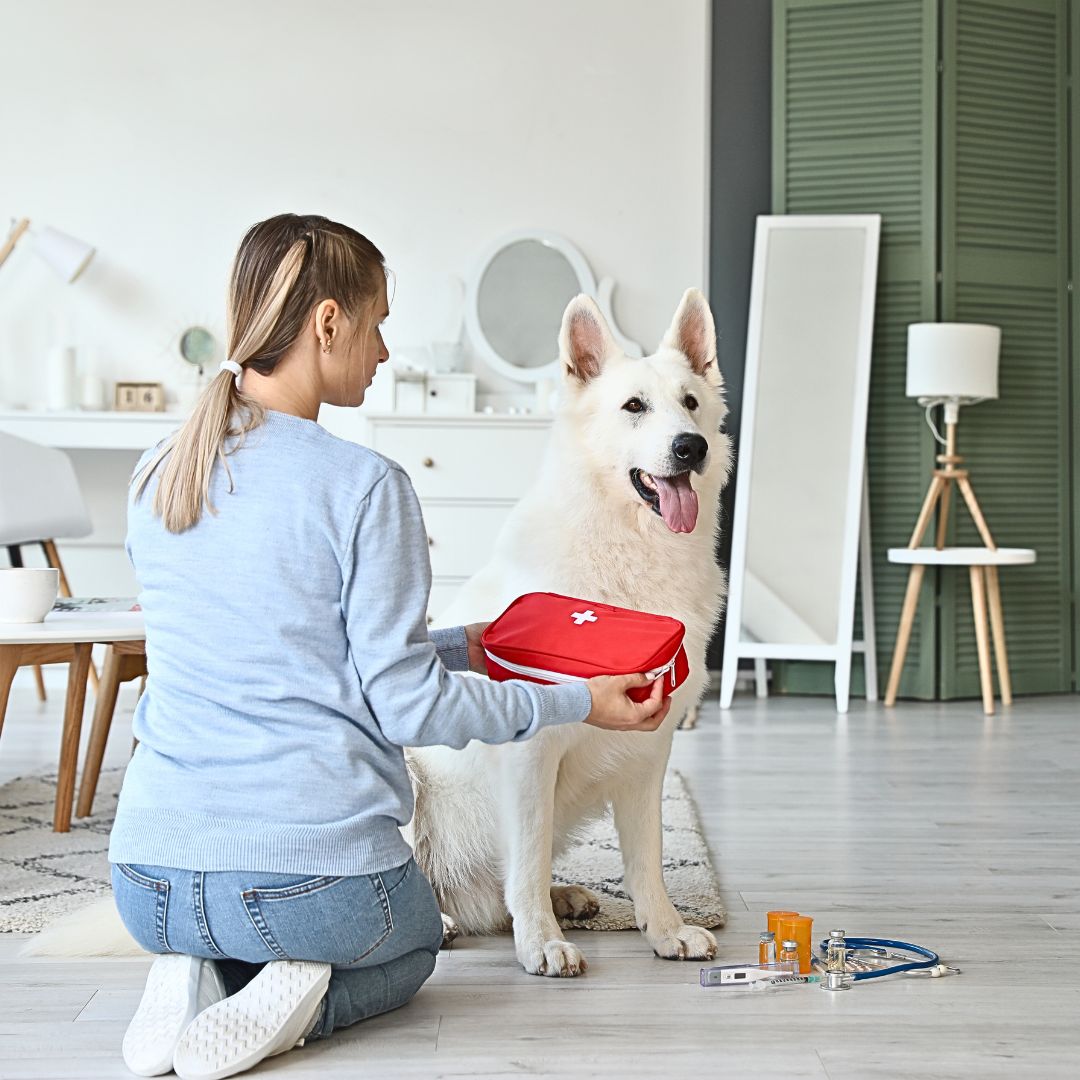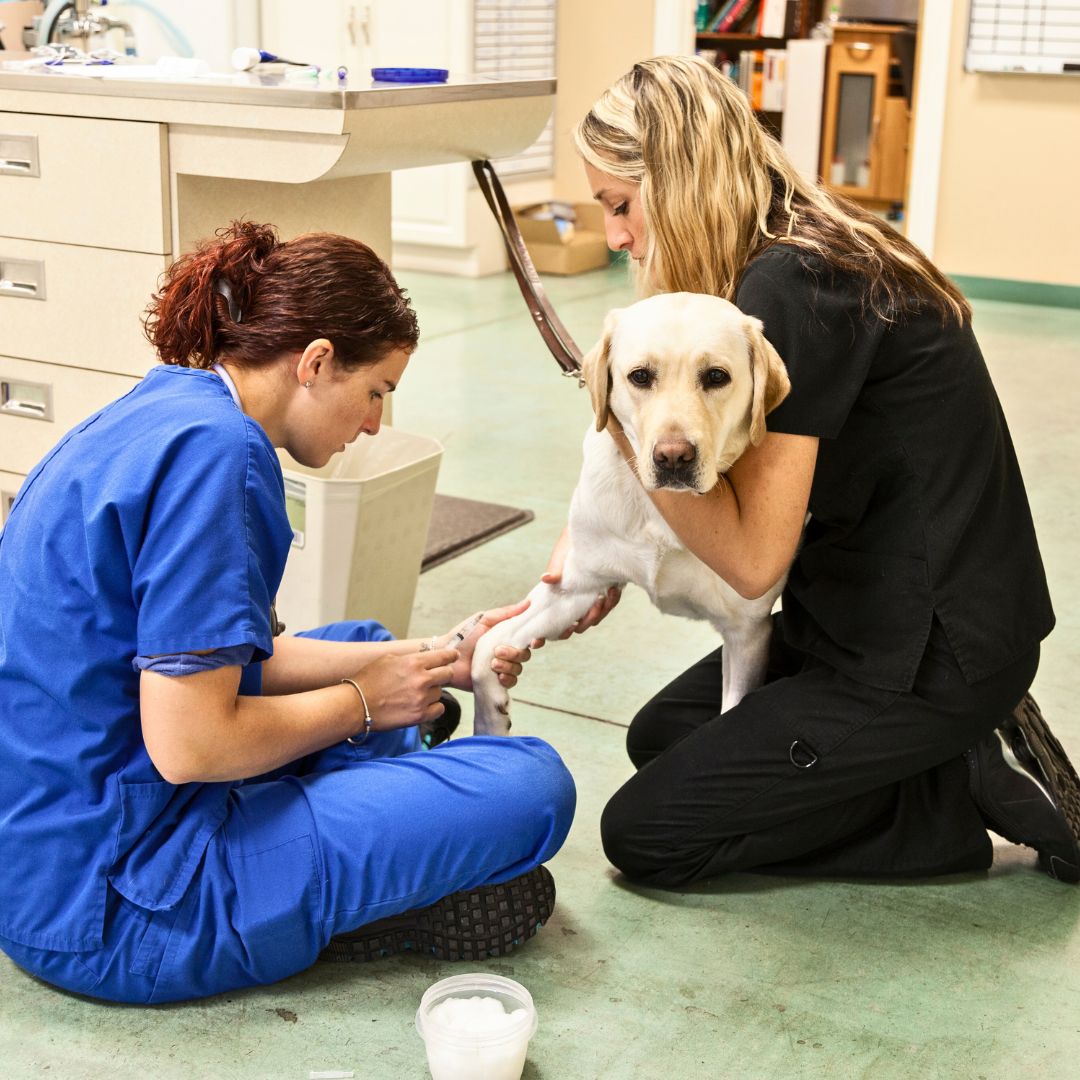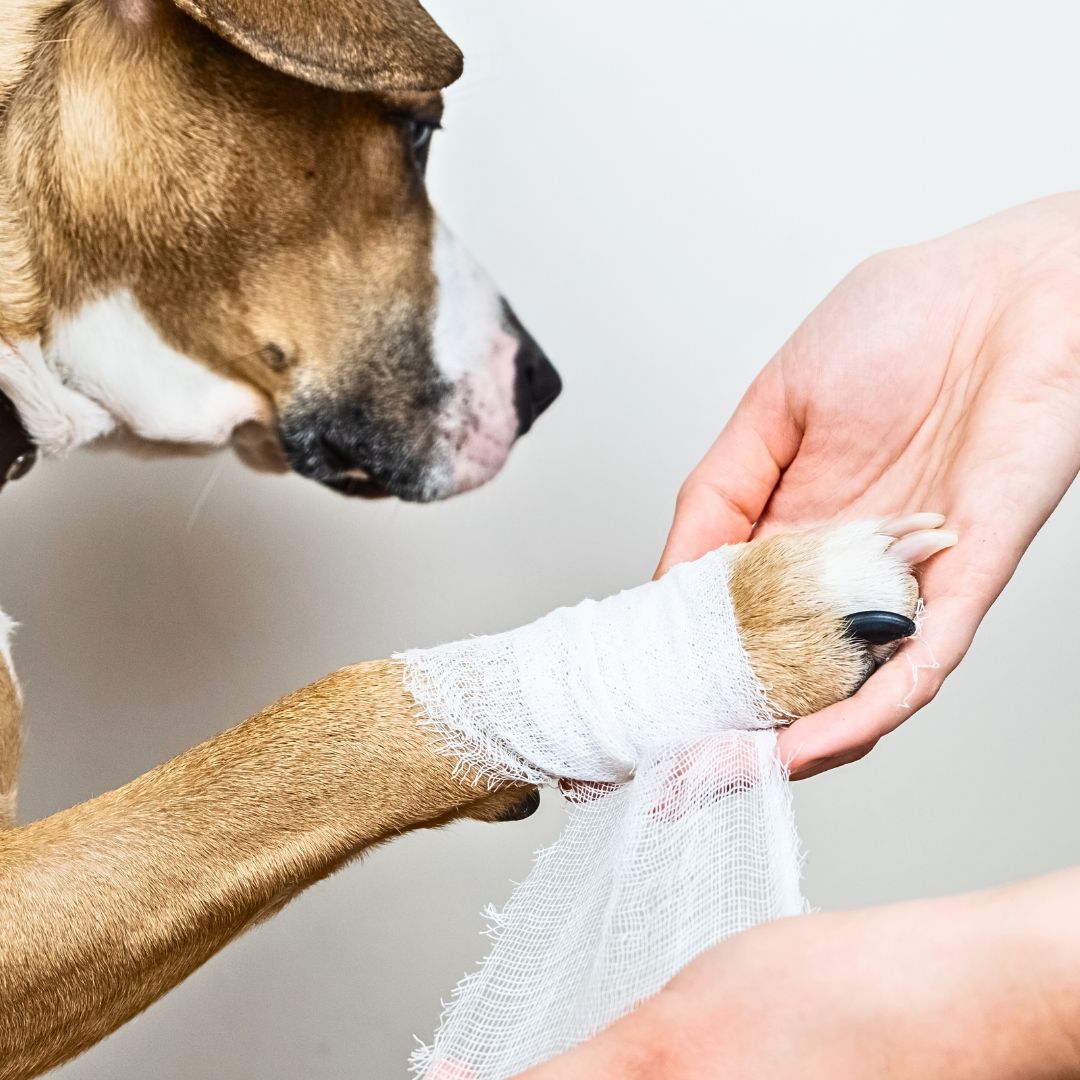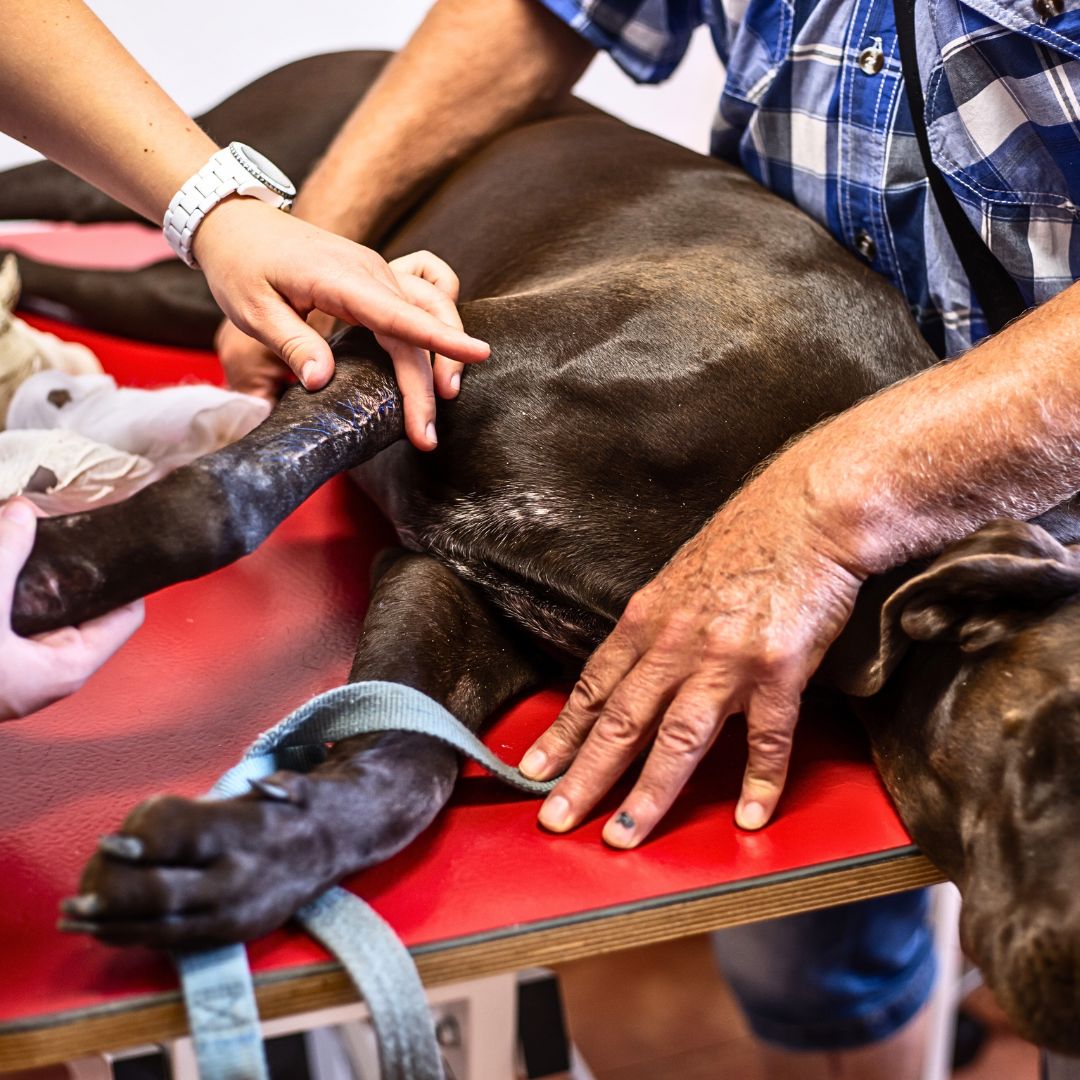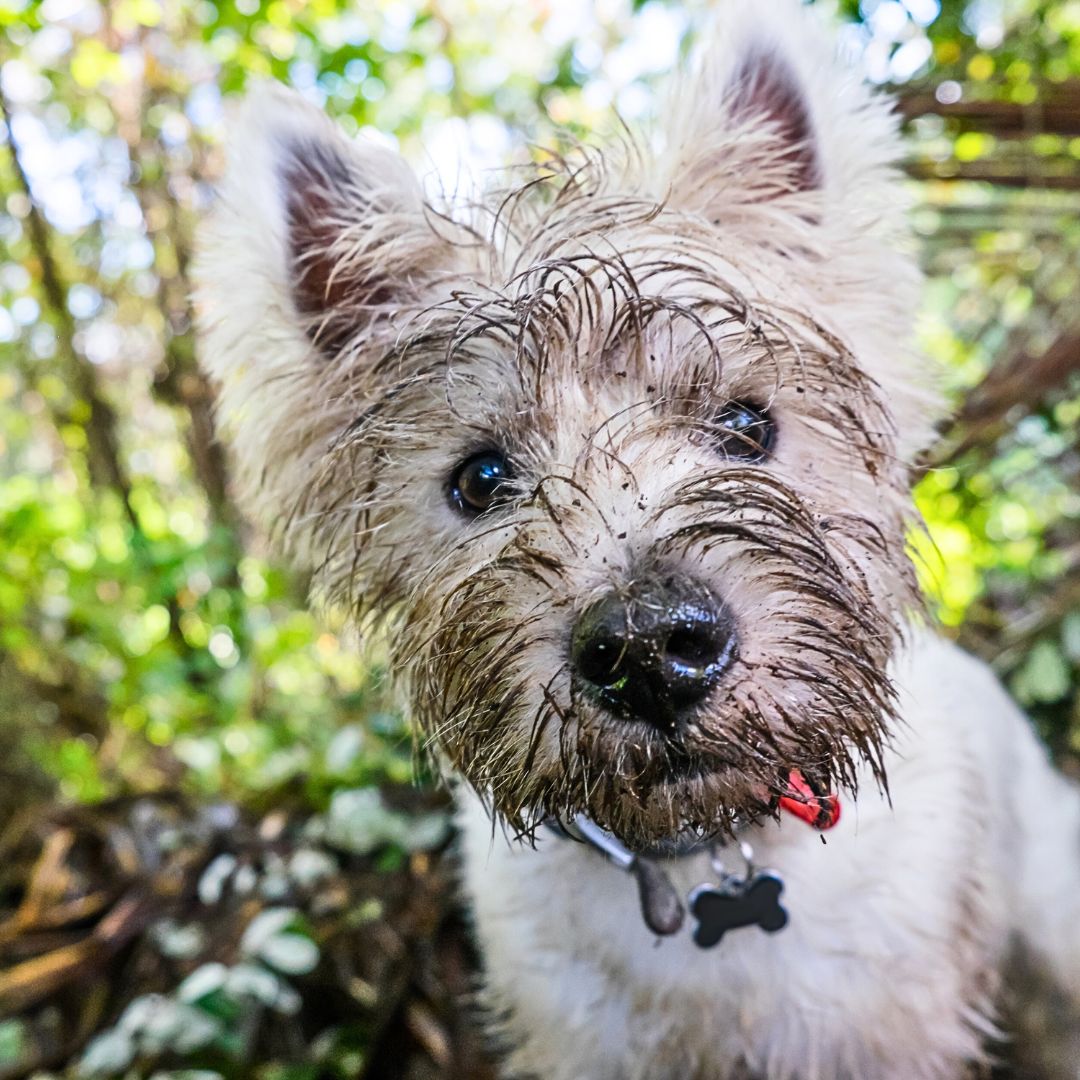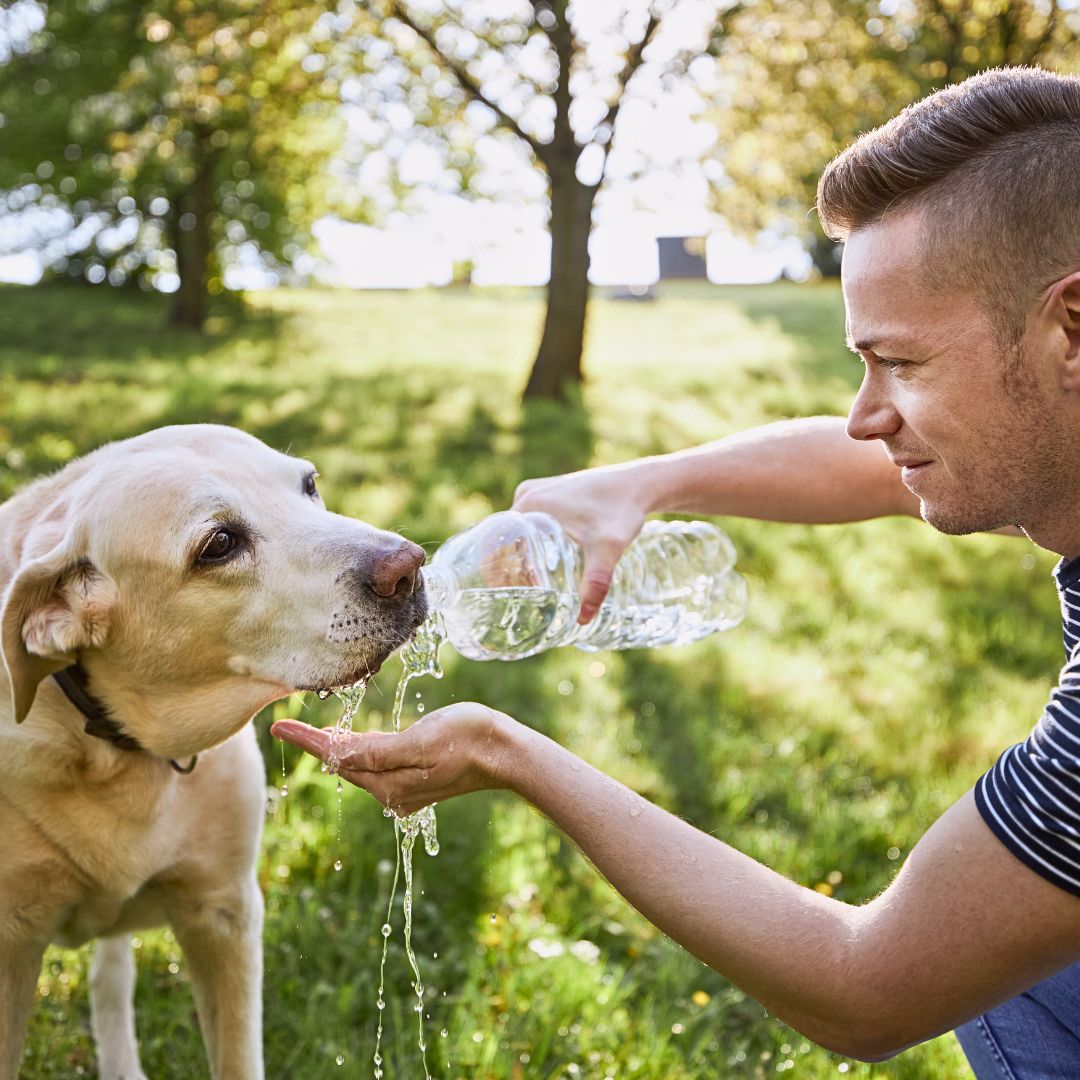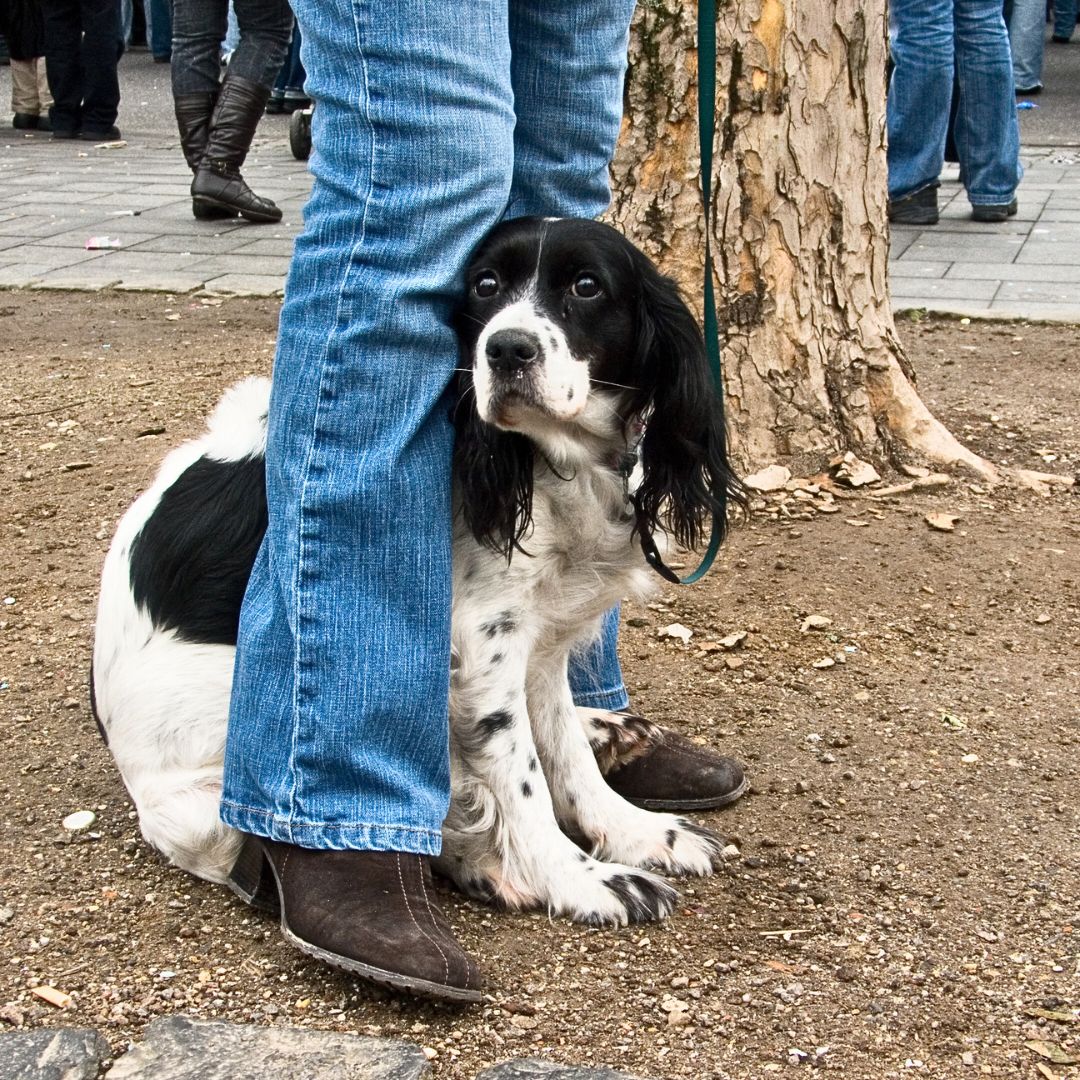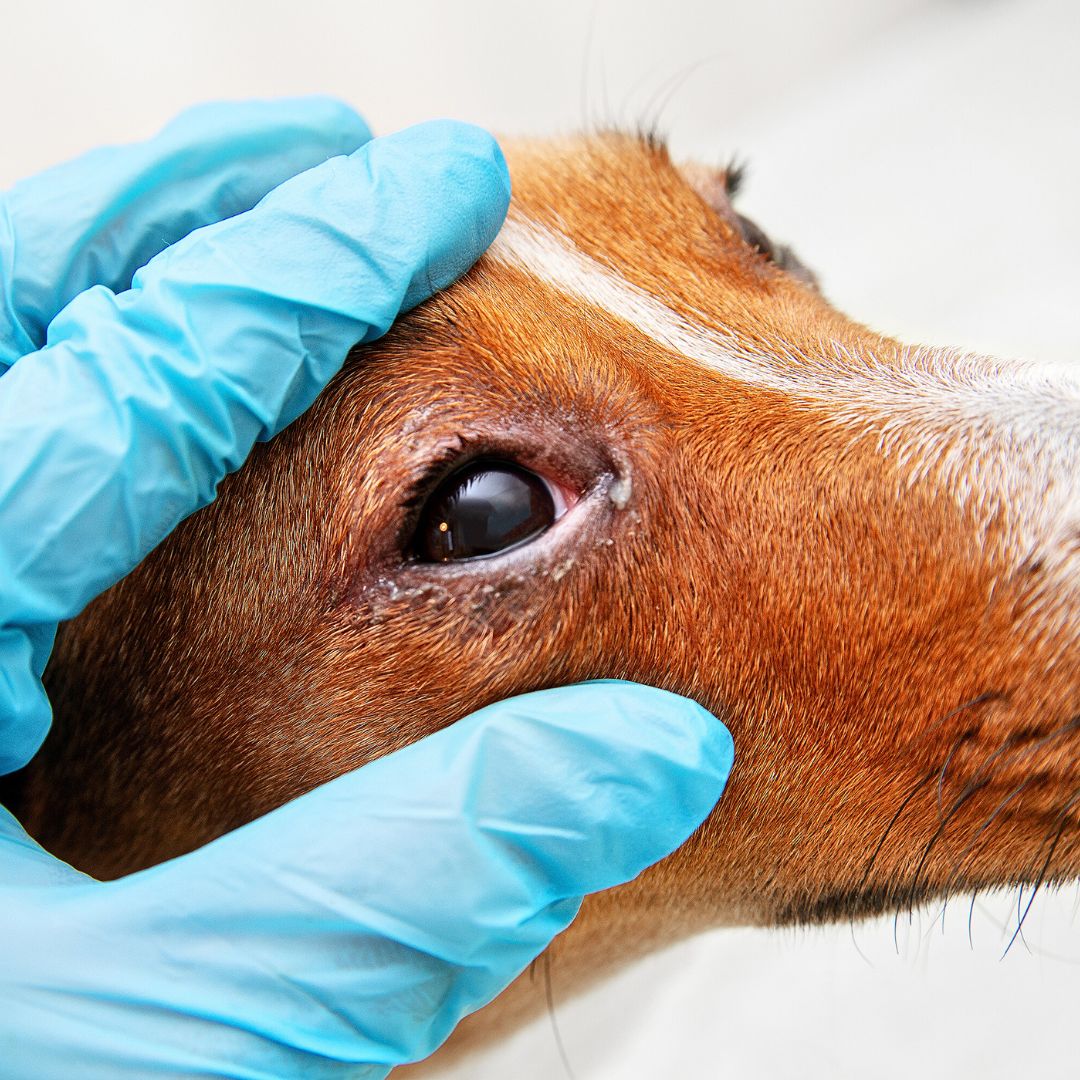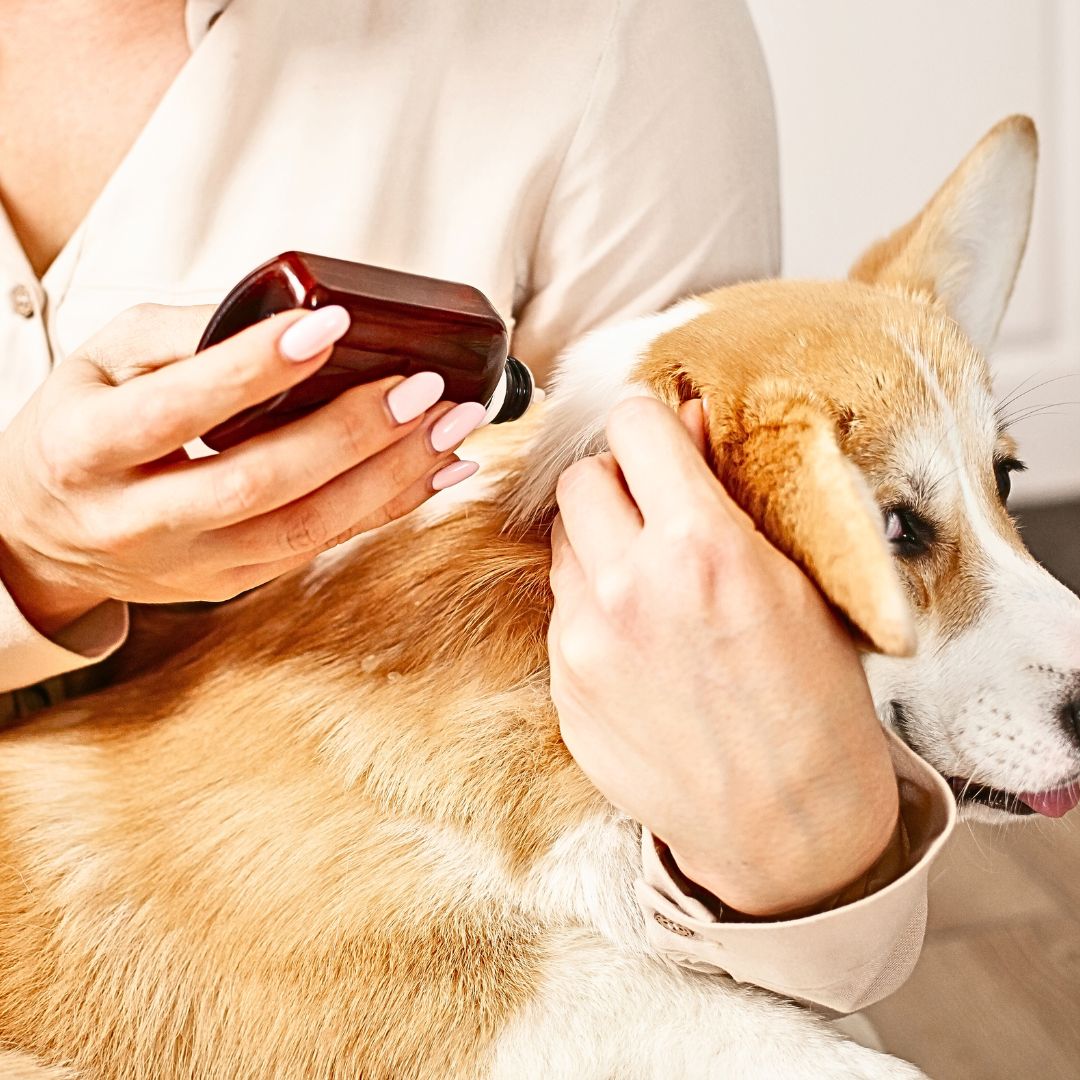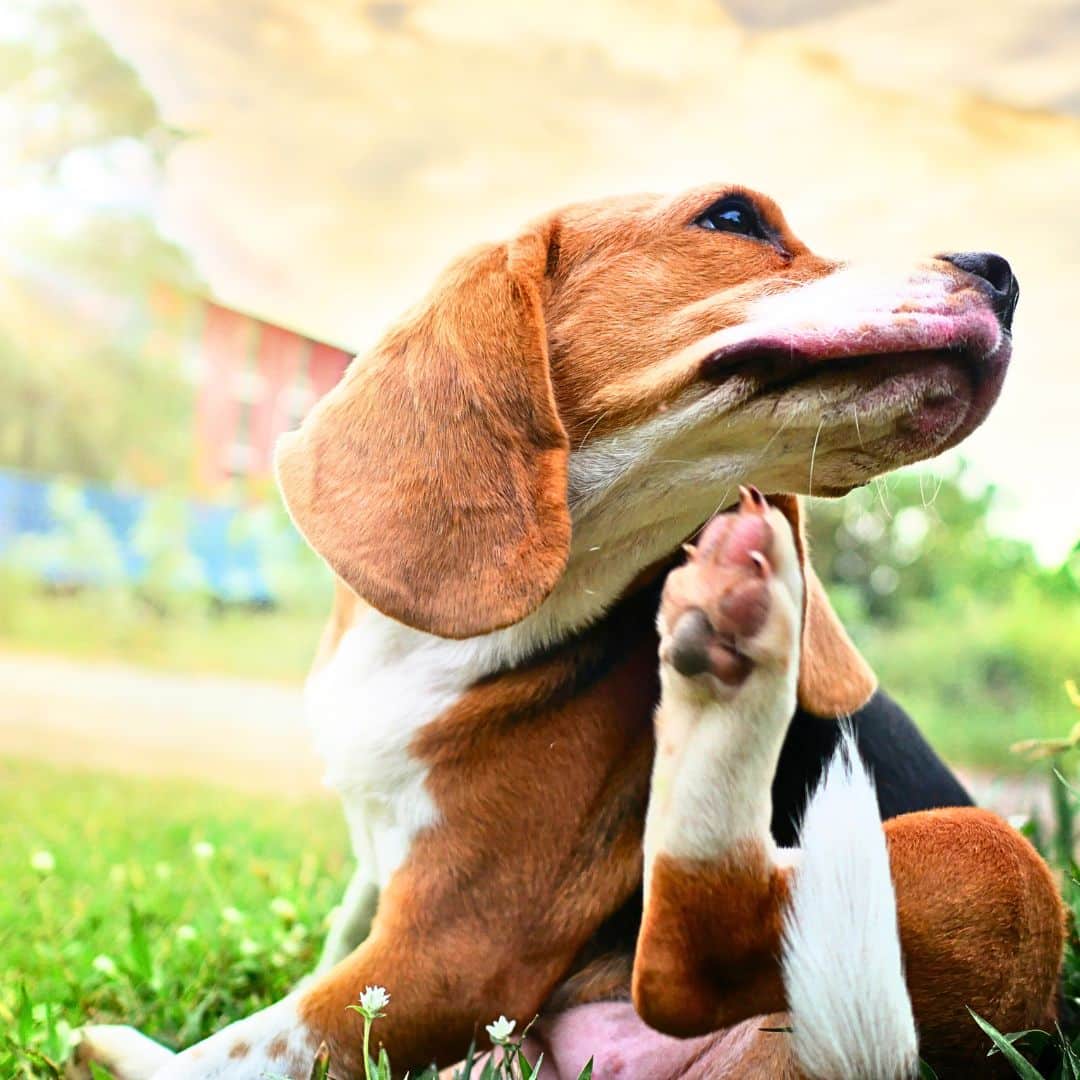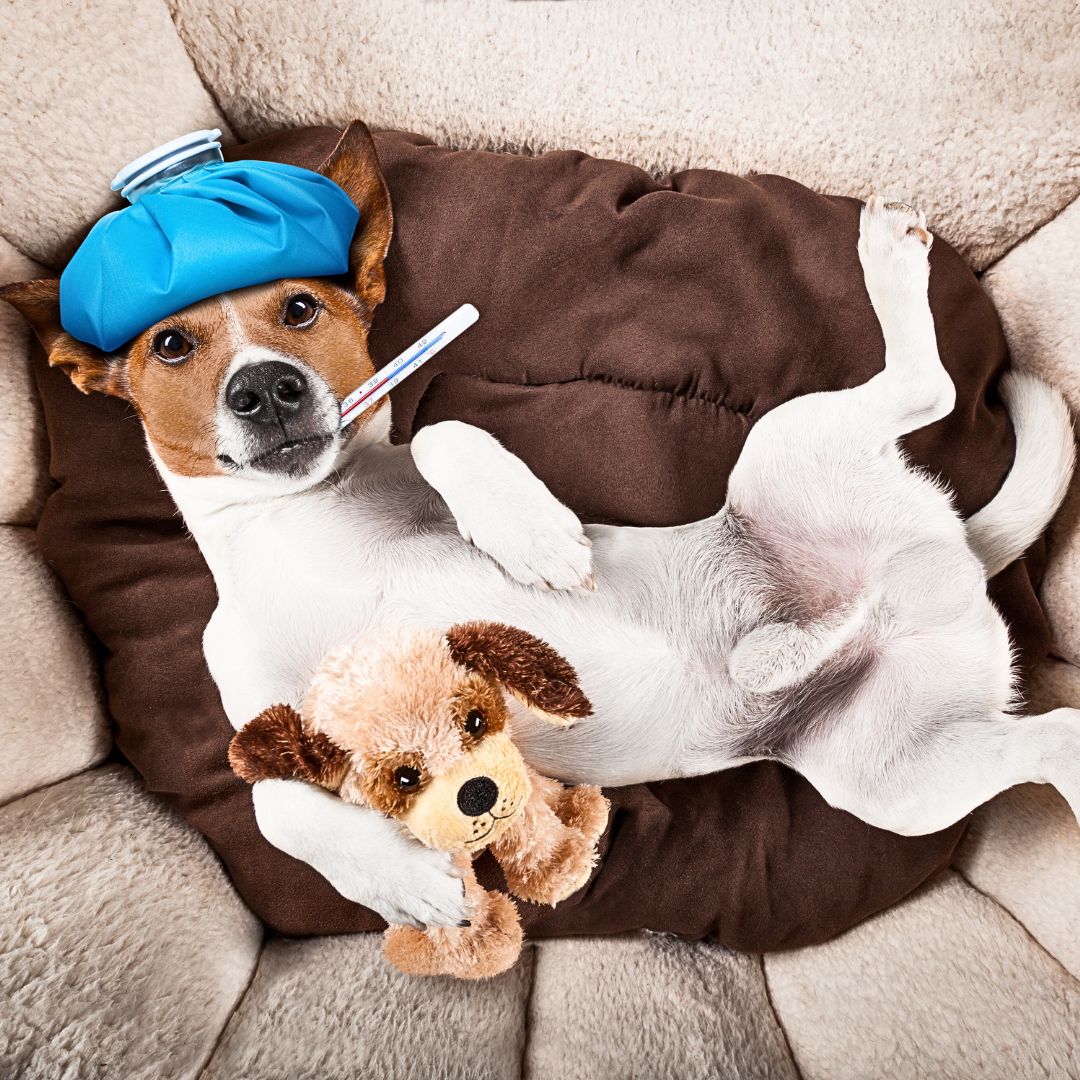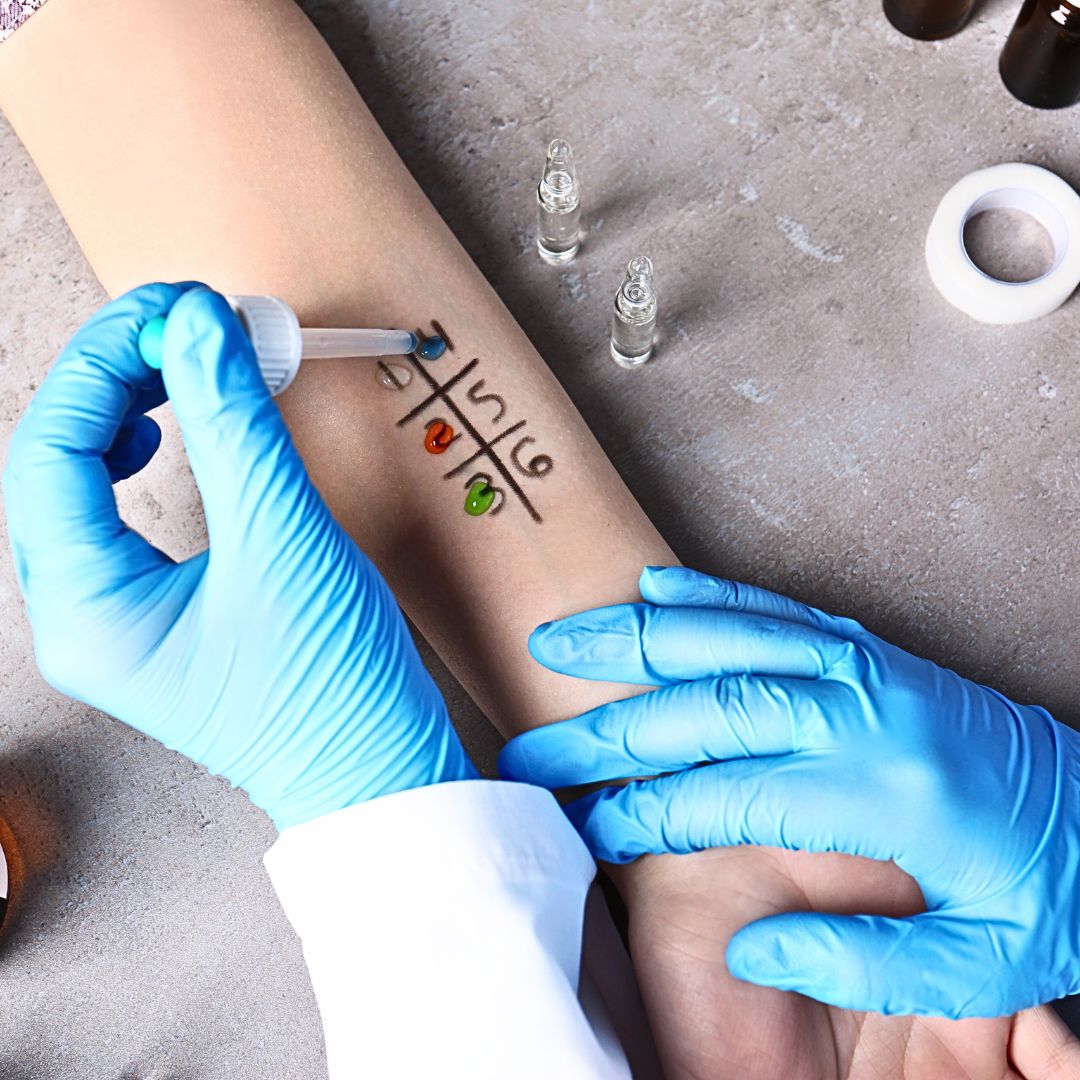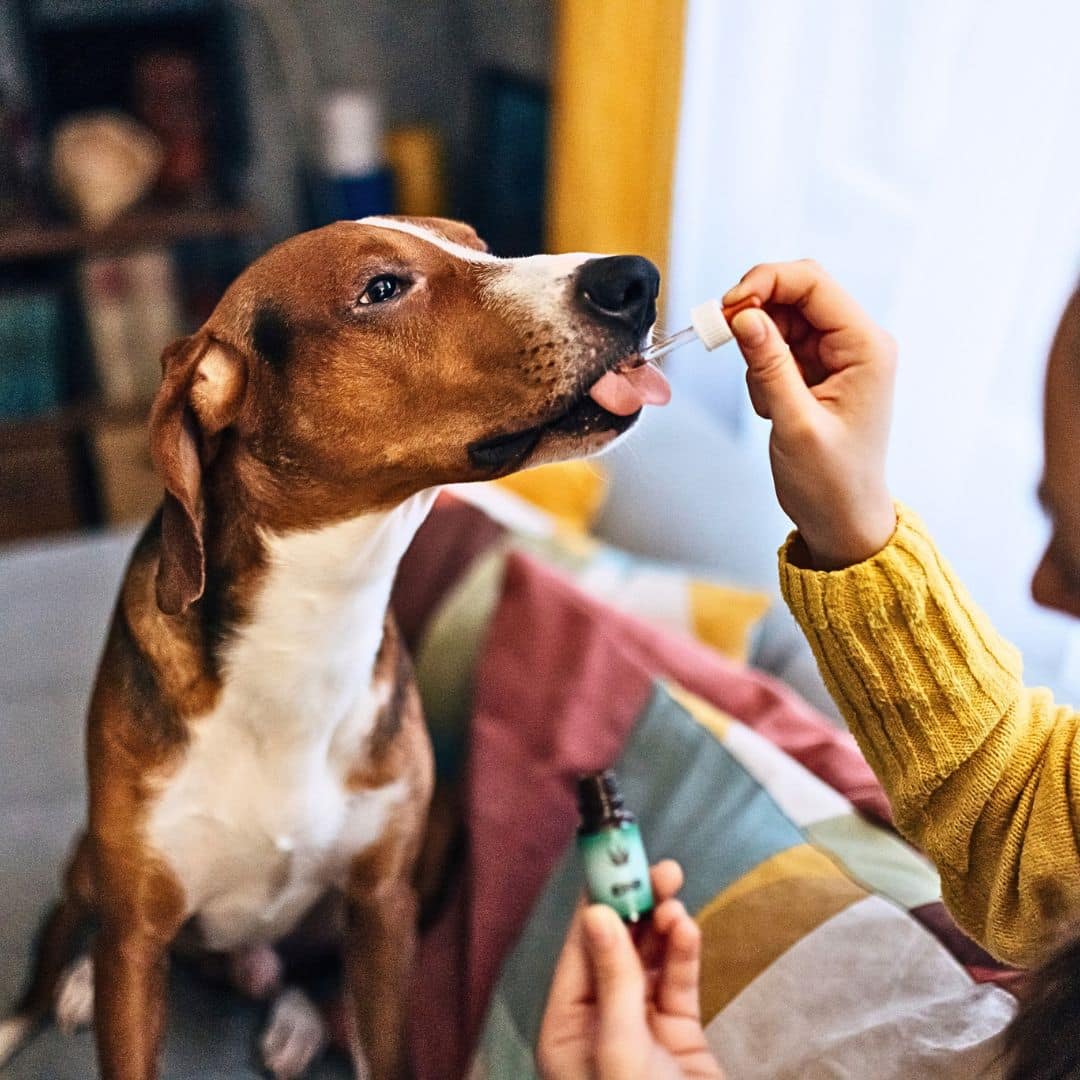Essential Tips for Handling Canine Emergencies – Basic First Aid for Dogs
Emergencies can happen unexpectedly, regardless of your location or what you’re doing. Whether at home, running errands in town, or travelling, always being ready for any situation is crucial and includes a Basic First Aid For Dogs Kit.
AKA suggests you include a Basic First Aid for Dogs Kit and Manual that you can print out and put inside and important paperwork, including a copy of your dog’s medical records, vaccination records, and emergency phone numbers.
Every year, thousands of pets are abandoned or left behind when their owners evacuate during natural disasters. People often worry about their safety and forget about the safety of their four-legged friends. However, there are many ways to keep your dog safe using First Aid.
Keeping your dog on a leash when outside is vital to ensure his safety. Have your dog’s ID tags and other identifying information if they get lost or separated from you.
Emergency preparedness supplies (emergency food, water, first aid kit) are available for your pet. Always carry identification in case they get lost or separated from you. Put your dog’s name and number on the tag.
In case you get separated from your dog, always carry your ID with your full name and contact information on one side of the tag and a phone number for the shelter or emergency vet on the other.
What to Do in Emergency – Follow Up!
Dogs are part of families worldwide. It is not easy to see your four-legged friend hurting. Every year, thousands of pets are abandoned or left behind when their owners evacuate during natural disasters. So, caring for your pet’s needs during a disaster is crucial. People often worry about their safety and forget about the safety of their four-legged friends.
However, it is important to help your furry friend. There are many ways to keep dogs safe in emergencies. Let’s discuss some of them here:
- Keeping your dog on a leash when outside is vital to ensure his safety. If your dog gets lost or separated from you, have its ID tags and other identifying information handy.
- Emergency preparedness supplies (emergency food, water, and a first aid kit) are available for your pet. Always carry identification in case your pet gets lost or separated from you. Put your dog’s name and number on the tag.
- It is important to always take labels with you, including your full name and contact information, in case you become separated from your dog. Make sure to have a phone number for the shelter or emergency vet on the other side of the ID.
Here are some tips to help a dog hit by a car.
1. Check for injuries: If the dog is still alive, it’s important to examine them for damages. If the dog is breathing, check if it can move its limbs. If they can’t move, seek medical attention immediately.
2. Look for signs of heat stroke, especially if the dog has been outside in extreme heat for a long time.
3. Make sure the dog is not in shock. If d show symptoms of shock, take them to the vet.
4. Call for help: If your pet is losing blood quickly or you can’t stop the bleeding, call emergency veterinary services right away.
5. Take care of the injuries: If your dog sustains injuries, attend to them. Seek medical attention for severe wounds that may require stitches or emergency surgery.
6. Be cautious while driving: If a dog runs into the road, slow down and observe before moving forward.
What items should be included in a dog’s Basic First Aid kit?
To be prepared for pet emergencies, it’s essential to have a kit with all the necessary items. You can buy a pre-made kit.
Regardless of your choice, you’ll need the following:
– A pet first aid book
– A pet first aid kit
– Nail clippers and grooming shears
– Cotton swabs
– Gauze pads
– Antiseptic wipes
– Hydrocortisone cream or anti-itch cream
– Tweezers for removing ticks and stingers
– Disinfectant for the wound
– A pair of gloves
– A ceramic tile (if required)
– Tape
– Razor
How to Recognize Breathing Difficultly in Dogs?
Dogs have breathing difficulties for various reasons, some more common than others.
- Allergies
- Barometric pressure
- Chemicals-Congestion
- Inhalation of dust, grass, or dirt
- Intoxication
Pneumonia/Respiratory Infection
Pneumonia can lead to airway obstruction and the inability to breathe. When your dog has difficulty breathing, the first thing to do is check the airway. If any block is clear, you need to check your breathing. Is the chest moving up and down? Is he making any sound? If yes, he may need some water or asthma medication. However, you must call for an emergency if there is no movement or sound.
Chest Pain: Chest pains should be evaluated for the presence or absence of other symptoms, such as shortness of breath, fever, night sweats, and weight loss.
Sudden Onset and Shortness of Breath with Cough or Tightness in the Chest: This can signify that the dog is experiencing an obstructed airway and requires emergency rescue breathing for support.
Inlet Obstruction is when something blocks the airway that goes into your nose and mouth.
How do you know if your dog needs emergency care?
If your dog has become lethargic, is not eating, is vomiting, or has diarrhea, you should take him to the vet. If he shows signs of pain when you touch him or has a fever and shivering uncontrollably, it’s time to head to the vet.
What type of Road Accidents happen with dogs?
Dogs are the most common victims of road accidents. There are many reasons for this, but there are a few specific causes worth mentioning. The most common type of accident is when a vehicle hits a dog. It is usually a result of the driver’s inattention to what is on the road or an incident where a driver purposefully runs over a dog. Another type of accident that dogs experience is when they get hit by cyclists who are not paying attention to their surroundings. Finally, we have accidents where dogs run into traffic and get hit by vehicles while trying to chase after an animal or another dog.
What type of First Aid can stop a dog from bleeding?
Knowing what type of First Aid to give is essential when a dog has a bleeding wound.
- There are two types of bleeding: external and internal. External bleeding occurs when blood comes from the body’s surface. Internal bleeding occurs when damage occurs to deep tissues or organs.
- To identify the type of bleeding, you should look for an exit wound or find a pressure point above the damage and see if any blood seeps out.
- If there’s no exit wound or if there’s no seepage, then it’s likely that there is internal bleeding.
- If you have identified that your dog has external bleeding, you should apply direct pressure on the wound with a clean cloth or towel until your pet stops licking at its injury and moving its leg around in pain.
- What if you have identified that your dog has internal bleeding? Then you should call for emergency assistance immediately, as this requires immediate medical attention.
What is the recommendation for a dog with a ruptured spleen from a Car accident?
A ruptured spleen is a severe condition that can lead to life-threatening complications. Knowing the symptoms of a ruptured spleen and what to do if you suspect your dog has this condition is essential.
The following are some of the symptoms of a ruptured spleen
- Decreased appetite
- Lethargy
- Pale gums
- Abdominal tenderness or pain
- Swelling in the abdomen, groin, or chest area
If your dog shows any of these symptoms, you should immediately take him to the vet.
First Aid for Dogs with Broken Bones
Broken bones in dogs are usually caused by falls or car accidents. The most common bone to break is the femur, the thigh bone.
- When you see a dog with a broken bone, the first thing to do is stabilize the animal and keep it still. You can do this by supporting the body weight with a towel and holding still until help arrives.
- If you have medical training, you can apply pressure to slow the bleeding and prevent further injury. Otherwise, it’s best to keep the dog still.
- The next step is to find out where the break is located so that emergency responders or vets can treat it accordingly.
- It can be done by feeling for a noticeable protrusion on the skin or through x-rays and ultrasounds if needed. First Aid for dogs with burns and scalds
- The best way to treat a burn is to cool the affected area with cold water for ten minutes. If the burned area is large, you can use a wet towel or bandage to cover it.
Basic First Aid Kit Supplies are needed.
If you have a first aid kit at home, it should have certain supplies. The severity of the burn will determine these supplies. Still, they should include antiseptic cream or ointment, antibiotic cream or lotion, gauze pads of various sizes, and rolls of adhesive tape.
If your dog has been burned in any way – from touching hot pavement to being scalded by hot liquid – you must act quickly. You should start cooling the burn with cold water for 10 minutes if possible. Then, a topical ointment will be applied to the affected area. If you can’t cool it down, place the dog in the shower and let the water wash over him.
First Aid for Dogs that Have been Poisoned
The most important thing to do is call the vet. Here is a list of what to do if your dog has been poisoned:
- Call a vet and Keep your dog as calm as possible.
- Treat immediately with a stomach pump if your dog is still conscious.
- Give your dog activated charcoal to stop any more poisons from affecting them.
- Contact your vet directly if you suspect your dog has ingested something toxic.
- Administer hydrogen peroxide orally to your dog.
Hydrogen peroxide is not a medication and should not be used, but in an emergency, it can induce vomiting in dogs who have ingested toxic substances. Hydrogen peroxide is often recommended for vomiting on its own.
First Aid for dogs with a Swollen Tummy
The Basic First Aid Kit for dogs with a sore stomach avoids giving them anything that might worsen the stomach. I include food, water, and other liquids. You aim to stop the dog from throwing up or worsening its stomach. If you need help with what to do, contact your veterinarian.
First Aid for a dog with a Ball lodged in its throat.
If you find your dog choking and has a ball stuck in its throat, check if it is visible. If the ball is visible, proceed. Place your dog upside down on a table or chair and use one hand to support its head while using your other hand to hold them around its stomach so it cannot move. It will force gravity to help dislodge the object, making it easier for them to cough up.
Use a finger or two of one hand and carefully sweep upward as far back as possible for the object to come out of their mouth. It may take several times before it comes out.
Place your dog on its side and use one hand to support its head while using your other hand to hold them around the chest. It will force gravity to help dislodge the object making it much easier for the dog to cough it up. When they do manage to cough up the object, stroke or pat them until they are completely relaxed.
First Aid to help Dogs with Coat Contamination
Dogs are usually excited when they go to the park. They run around and sniff other dogs, which is fun. Sometimes, however, they come across things that could be more pleasant on their way. It can be anything from a dead animal to trash or even chemicals. This is where first aid comes in handy. To avoid health problems, you must act fast and ensure your dog gets the attention it needs as soon as possible.
Here are some tips for how you can help your dog if it has become contaminated:
- Gently wash off any dirt or chemicals with warm water and mild soap
- Rinse the area thoroughly with clean water
- Apply a topical antibiotic ointment to prevent infection
- If there is any redness or irritation, apply an anti-inflammatory cream
- Take your dog to the vet for treatment.
- Give them Pepto-Bismol, which helps with diarrhea, or an over-the-counter medication that treats pain and inflammation.
First Aid for Dogs with Heat Stroke
Heat stroke can be deadly. If you see any of these signs, take your dog to the vet immediately.
Heat stroke is a life-threatening condition caused by a dog getting too hot. With prolonged exposure to heat, it’s dangerous for dogs to get hotter, as this can cause problems with their organs, brain, muscles, and heart.
Signs of heatstroke include profuse sweating, pale gums and tongue, and lethargy. If you see these signs in your dog during the summer, get help immediately and contact your veterinarian.
- Excessive panting and drooling
- Heavy red tongue, gums, and lips
- Rapid or difficult breathing
- Dry nose and mouth
- Excessive thirst
- Dehydration-Hot and red skin
- Pale gums
List of things you can do to help the dog from Heat Stroke in the summer months:
Keep a water bowl in the shade at all times. Provide shade for the dog to escape the sun using a tree, porch, or other structure. Please keep your dog cool by spraying it with water or taking it to a pool or lake while swimming. If you see your dog panting excessively, take it to the vet as soon as possible—it may have heat stroke and need immediate treatment!
Keep an eye on your dog’s temperature—if it reaches 106°F (41°C), it is at risk of heat stroke and should be taken in-house immediately! Make sure your dog is well-hydrated. Dogs need to drink more in the summer as their body temperature rises, so always provide plenty of water!
Keep sunblock on hand for your dog and ensure they don’t lick it off throughout the day—it will help protect them from sun exposure and can reduce the risk of sunburn!
How to Calm a Dog During an Anxiety Attack?
First, remove your dog from the source of the stimulus. For instance, if your dog is barking at the door and you cannot leave the room, you can move yourself or your dog somewhere else. If your dog can’t leave the room or other stimulus, try calming methods such as Slow movements: To soothe a dog, you should move slowly.
The following are some of the most common ways to calm a dog during an anxiety attack.
Calming Pheromones: Calming pheromones are used in collars and diffusers to reduce stress in dogs. These pheromones are effective in reducing anxiety, fear, and aggression. If the dog is stressed or anxious, hold it close to you and use a calming approach while speaking calmly.
Massages: Massaging your dog is soothing for the animal and you. It can help release tension and ease stress.
Toys: Playing with your pet can help distract them from worries. A good toy will keep them entertained and out of trouble while providing mental stimulation.
Exercising: Exercise is the best way to help lower stress in dogs. Take your pup on a walk or play ball with him, as this will help tire him out and release built-up energy that may be causing his anxiety.
Treats: Giving your pet treats can help distract him from his worries and give him a little TLC, reducing tension.
First Aid for a dog Traveling in an Airplane that seems shocked and distressed after a Flight?
A dog may be traumatized by the experience of being in an airplane. It is because many sounds, smells, and sights are unfamiliar to them. It can also be difficult for the owner because they cannot always reassure the
dog.
The following are ideas that can help a dog that is travelling in an airplane and is distressed:
As an animal owner, it is crucial to understand that animals are just as sensitive to stress as humans. A distressed dog travelling in an airplane will need time to adjust and become comfortable.
- Offer them food and water immediately after landing.
- Please give them a safe space with their favourite toys, blankets, or bedding.
- Spend time with your furry friends so they know you’re there for them.
- Leave the door open and let them come and go, invite them outside.
- Be patient with your pet and give them time to adjust.
- Please provide them with a stress-relief toy, like a Kong or Frisbee.
First Aid for Dogs with Eye Injuries
Dogs are the most beautiful pets in the world. They are loyal, loving, and fun companions. Eye injuries can cause many things and be very serious if not treated properly. Dogs are prone to eye injury because they have thin and delicate cornea. They are also more likely injured by dirt, dust, and sand. It is a common problem for dogs who spend time on the beach.
This article will go through some of the symptoms and treatment for eye injuries in dogs:
Symptoms:
- Inflamed eyes
- Bloodshot eyes
- Loss of vision
- Swelling around the eye or on the eyelid
- Pus coming out from around the eye or on the eyelid
- Increased sensitivity to light
Treatments:
1. Eye flush with saline solution or milk (warm milk may be necessary) around the cornea to remove foreign material. If a significant amount of blood is present, this may need to be done more than once and repeated
every 30 minutes until it stops bleeding.
2. If possible, Apply pressure to the wound while waiting for the bleeding to stop.
3. If the cornea is scratched and there is a lot of debris, the cornea must be flushed out with a saline solution or milk and rinsed with a sterile eye ointment.
4. If there is significant vision loss, the dog should be seen by an ophthalmologist or an emergency veterinary clinic for treatment as soon as possible.
5. With all eye injuries, ensure that your dog does not have access to anything sharp that could injure it.
What is First Aid for a Drowning Dog?
The first thing to do is to call 9-1-1. You can also get the dog out of the water if it is near shore. It will give you time to assess the situation and decide what steps to take next.
Don’t jump in after the dog struggles in deep water! You could both drown or be swept away by strong currents. Instead, throw a life preserver or buoyant object into the water and try to get as close as possible without entering the water yourself. Try grabbing the dog’s collar and holding it, holding its hind leg or tail with your other hand, and pulling it towards you.
If that doesn’t work, try using both hands on their hind legs or tails and pulling them towards you while holding onto their collar with your other hand, and when you have a grip on your dog, use one hand for support while lifting its chest with your other hand.
In the event of a drowning dog, you must act quickly and follow these steps to help your pup:
1. Call for help.
2. Remove the dog from the water as quickly as possible.
3. Perform CPR on the pup until they start breathing again or until help arrives.
4. Keep them warm and reassure them until they can walk independently.
5. Seek veterinary care if needed.
6. Follow a First Aid booklet for instruction on how to treat any other injuries he may have sustained while in the water.
7. Collect all items necessary to file a report with animal control and police, such as a collar, tags, leash, identification band, or tattoo on the animal’s body.
8. Write down what happened in detail and keep it with you until a veterinarian sees your dog.
First Aid treatment to help a dog that’s received an Electric Shock
If a dog has received an electric shock, it is vital to act quickly. The dog may need CPR or mouth-to-snout resuscitation if it is still alive. The dog may have had a heart attack and require cardiopulmonary resuscitation (CPR).
First, check the dog’s vitals. If it is not breathing or its heart has stopped beating, you must perform CPR. You should also check for any injuries caused by the electric shock.
If there are no injuries and the dog is breathing, you can move on to other treatments, like giving them an antacid or placing them in a cool bath.
12 Tips for helping a dog after an Electricity Shock:
1. Check for signs of shock:
2. Remove all items from the affected dog’s mouth, including sticks,
stones, and other objects that may have clenched in the dog’s teeth.
3. Apply light pressure on the chest to help keep blood flowing to the heart and brain if possible.
4. Loosen any tight clothing around the neck or chest to maintain a clear airway and check for an injury or obstruction.
5. Provide water or a wet towel if available;
6. Offer food if you can do so without endangering yourself;
7. Keep your pet calm and quiet;
8. Monitor your pet’s breathing and heart rate until you reach veterinary care;
9. Seek immediate medical attention from a veterinarian if symptoms worsen or do not improve within 20 minutes of treatment;
10. Check for signs of injury such as burns, cuts, swollen joints, or broken bones
11. Turn off the power source that caused the electric shock.
12. If your dog is unconscious and not breathing, perform mouth-to-snout resuscitation. If your dog is conscious but unresponsive, put the dog in a recovery position and check for breathing.
First Aid for a Dog that Has been Stung by Insects
The first thing to do is remove the stinger. You can scrap it off with a credit card or another thin, flat object. If the dog has been stung on the lip or tongue, give it water and take it to a vet immediately.
A wasp or hornet sting can be excruciating for a dog, especially from multiple stings. The pain can last for an extended time and even lead to death.
The dog got stung by a wasp or hornet, here are 12 suggestions that can help them
A wasp or hornet sting can be excruciating for a dog, especially from multiple stings. The pain can last for an extended time and even lead to death. If your dog got stung by a wasp or hornet, here are 20 things you should do to help them:
1. Find out if the stings are on the mouth, nose, or eyes
2. If the stings are on the mouth, nose, or eyes, try to remove them with a credit card or other object.
3. If you can’t remove them yourself and they’re too close to the eye area, then get immediate medical attention
4. Clean up any stingers that have fallen onto your floor with a damp cloth and place them in a baggie so they don’t hurt anyone else who enters your home
If your dog got stung by a wasp or hornet, here are things you should do to help them:
5. Try to keep your dog calm and as still as possible
6. Use ice packs to reduce swelling
7. Take your dog for treatment at an animal hospital if you suspect that the dog received a bite by wasps or hornets
8. Keep your dog away from the area where the wasps or hornets are.
9. Try to take pictures of any dead wasps or hornets you find so you can show them to a professional.
10. Calamine lotion and baking soda paste will help reduce the itchiness and swelling caused by the sting.
11. If your dog has trouble breathing because of the pain in its chest, you should seek medical attention immediately.
12. If your dog starts vomiting or has diarrhea, it may have an allergic reaction to the sting. You should also seek medical attention because this can be life-threatening.
What is Basic Dog Resuscitation
Canine CPR is a life-saving technique an individual can use to revive an animal experiencing cardiac arrest. This technique comes in handy in emergencies.
CPR for a Dog – The steps for the technique are as follows:
- Lay the dog on its side and support the head and neck with one hand. Place your other hand on the chest to keep it from moving. Compress the chest by pressing down at least two inches (5 cm) and release, repeating until help arrives or until you see signs of breathing return.
- If the dog does not breathe, begin rescue breathing.
- Make sure that your dog has identification tags on them at all times
- Consider installing an alarm system so that they can let you know if they need help while you’re away from home
- Write down any allergies or medical conditions they have so that emergency responders can provide proper care if needed
- Put your toothbrush and toothpaste in a Ziploc bag so that you can use them to clean your dog’s teeth
- Leave room in the bag for a few treats that your dog enjoys
- Keep water bowls full at all times
- Remember to keep those leashes and collars on dogs, no matter where you are.
What should I do if my dog is bleeding?
If your dog is bleeding, apply gentle pressure with a sterile gauze pad. Elevate the injured area and seek immediate veterinary attention if the bleeding is severe. For smaller cuts or scrapes, you can clean the wound with antiseptic and apply an antibiotic ointment before covering it with a clean bandage.
How do you handle a dog that is choking?
When you see your dog choking, try to open its mouth and see if you can remove the object causing the blockage. If you cannot dislodge the object, perform the Heimlich maneuver for dogs by standing behind it, placing your hands just below its ribcage, and applying firm upward pressure. If the dog loses consciousness, perform CPR and seek emergency veterinary care.
Is it essential to have a pet first aid kit at home?
Yes, having a pet first aid kit at home is highly recommended. It should include gauze pads, adhesive tape, hydrogen peroxide, antiseptic wipes, gloves, scissors, and a pet first aid manual. Please familiarize yourself with the contents and know how to use them, but always consult a veterinarian for proper emergency guidance.
Conclusion:
These are The Best Tips For Keeping Your Dogs Safe During Emergencies
Keeping our pets safe during emergencies is crucial to prepare and plan. Here are some of the best tips to ensure the safety of your dogs during unexpected situations:
1. Create an emergency kit: Put together a well-stocked emergency kit for your dog. Include essentials such as food, water, medications, a leash, a collar with identification tags, a pet first aid kit, and any comfort items to help keep your dog calm.
2. Keep your dog’s identification up to date: Ensure your dog’s ID tags have your current contact information. Consider microchipping your pet as an additional form of identification, as collars and tags can sometimes become lost during emergencies.
3. Have a haven: Identify a safe place to take your dog in an emergency. I could be a designated room in your home or a nearby pet-friendly shelter. Make sure this location is easily accessible and well-prepared for emergencies.
4. Familiarize yourself with evacuation routes: Know your area’s evacuation routes and note pet-friendly accommodations. Knowing these options will help you make quick decisions during an emergency.
5. Practice evacuation drills: Regularly practice evacuating with your dog so that they become familiar with the process. It will help reduce stress in you and your pet during an emergency.
6. Have a backup caregiver: Establish a trusted neighbor, family member, or friend who can care for your dog if you cannot do so during an emergency. Share important information about your pet’s needs, routines, and any medical conditions they may have.
7. Stay informed: Stay updated on potential emergencies or natural disasters that could impact your area. Sign up for local alerts and stay connected with relevant authorities to ensure you receive timely information about evacuations or other safety measures.
Remember, our dogs rely on us for their safety and well-being, so by following these tips and being prepared, you can ensure their safety and give yourself peace of mind during emergencies.
What are “Dog Allergies”? 6 Signs You Have a “Dog Allergy to Dogs”
A dog allergy is an allergic reaction in which the body’s immune system responds to a substance and produces symptoms such as itching, swelling, or anaphylaxis.
Dog allergies may happen to a combination of substances in the Dog’s saliva, dander, urine, and fur.
These substances could be a protein from the Dog’s saliva that triggers an allergic reaction from the Dog’s dander that comes into contact with your skin.
Some of the most common Dog Allergies that affect people include:
1. Flea Allergy
A reaction that causes Itchiness and redness around the eyes, lips, nose and ears when exposed to fleas. The most common symptoms are sneezing, itchy eyes and nasal congestion. It can also cause dermatitis.
2. Grass Allergy
Allergic reactions to grass only appear in some people after they have exposed themselves to the hay-fever allergen. Symptoms may include a runny nose, sneezing, and itchy eyes and lungs.
3. Food Allergy
Allergic reactions are often associated with food allergies like hives, stomach cramps and vomiting, which occur when someone eats foods containing the allergy allergen and triggers an immune system response.
4. Food Intolerance
Food intolerance is not reactions to specific foods but to general foods. Common symptoms include abdominal pain and cramps, diarrhea, gas, bloating and Nausea.
5. Can you get Nausea from dog allergies?
Those with allergies will often suffer an allergic reaction to the animal’s dander. And saliva. Nausea is often a side effect of an allergic reaction to the animal’s dander and saliva.
6. What are the Sensitivities of dog dander?
Generally speaking, those sensitivities to animal dander will have an allergic reaction that can result in many symptoms. Some common signs people may suffer are itchy or watery eyes, a runny nose, a cough and asthma attacks. Those with severe allergies can suffer from serious anaphylaxis and require medical attention.
Finding Relief From Your “Dog Allergies!”
Having dog allergies can be challenging to find relief from the constant sneezing and itchy eyes.
We all know that dogs are great companions, but they can be a severe source of allergies. You can reduce your environmental exposure to allergens and help relieve your symptoms.
We have 10 Tips to help relieve your Dog Allergies.
1) Use a Neti pot
Neti Pots are small and can be used to rinse the nasal passages. Just fill a jar with warm water, add two or three drops of saline solution and breathe through it for about 10 minutes. It will help relieve congestion and relieve infection in your nose and sinuses.
2) Use an anti-histamine
Antihistamines are drugs that reduce inflammation in the body and fight allergies. They work by blocking histamine, an inflammatory agent. Some antihistamines also have anti-inflammatory and pain-relieving properties, which can help when you’re suffering from allergies.
3) Try using a humidifier
A humidifier will provide moisture to the air while fighting against dry, itchy skin and cracking.
4) Consider using a saline nasal spray
Saline sprays help clear congestion in the sinuses and can be used with antihistamines to relieve allergy symptoms.
5) Avoid pet dander:
Pet dander causes allergies. It includes dust, fur, saliva, and dead skin particles. The best way to avoid this is to keep your pets out when you’re not home or leave them inside at night.
6) Avoid dusty environments
Dusty environments can irritate your nose and cause a runny nose. These include carpeting, pet dander, and cigarette smoke. The best way to avoid this is to keep your house clean and avoid dusty environments.
7) Avoid people who are sick
People with colds, the flu, or other illnesses can quickly spread their germs to you. You should stay away from them if you’re feeling sick yourself.
8) Clean your nose daily
Blow it out through your mouth and wipe it so there’s nothing in there.
9) Practice Good Hygiene
Start by washing your hands while avoiding people who are sick.
10) Stay healthy
This includes getting enough sleep and exercising.
How can I get Tested for Allergies?
It would help if you mentioned your allergies to your doctor or allergist to determine which may affect you and where to focus treatment. Sometimes, a skin test is offered as part of this process to help recognize where the allergy is.
The test is on the forearm, but you could also do it on the back. It may be necessary to test for allergic reactions at certain levels of allergen concentrations.
Make sure your skin doesn’t have any allergic reactions. Ask your doctor or nurse to check you out after 15 minutes; they’ll ensure they’re complete before you continue.
If you’re experiencing redness or other adverse effects, stop scratching altogether and talk to your doctor. Rubbing too hard can cause permanent damage, so it’s best not to do that.
The environment can also cause Allergies.
Pet allergies are allergic reactions to proteins on an animal’s skin, saliva or urine. Depending on the severity of your symptoms, you may experience common hay fever symptoms, such as sneezing and a runny nose. Some people with mild to moderate pet allergies may experience asthma-like symptoms like wheezing.
Here are some tips:
- If you’re worried about allergies in your home, create an “allergy-free” zone. The pet’s bedroom is an excellent place to start; use high-efficiency HEPA filters and consider using impermeable covers for the mattress and pillows.
- Bathe your pet regularly to help prevent allergies and reduce the dander levels in your home. Talk to your vet about the safest way to bathe and use the products recommended.
- You are keeping your Distance. Don’t touch your dogs. Kiss a dog as best as possible; avoid going to friends’ homes who also have dogs. If they have dogs while staying in a house with a dog, ask if you can keep it out of the room you’ll sleep in for a few months before your arrival so it does not get filled with dander, which will cause Allergies.
- Use Medicine. If you know, you will be coming into contact with a dog. Start taking your medicine four weeks ahead. Taking preventative medication might stop an allergic reaction before it starts.
- Be Aware of if you are entertaining guests who have dogs. Otherwise, those last-minute house guests can bring the dander even with their dogs staying elsewhere, which can cause a lot of trouble.
Some of the above advice will only help if your Dog Allergies are already friendly in your home.
Clean Fanatically
- allergens get everywhere. It would help to clean regularly, especially with your vacuum and certain cleaning materials. It’s always best to vacuum with a HEPA filter as it helps to prevent allergens from getting back into the air and giving you trouble.
Make your home easier to clean.
- Reduce the number of toxins in your house that make it difficult for you to breathe. You can pull up your carpet, remove your drapes, and wash them to keep dust and dander down. It will help reduce dust mites as well as other allergens.
Filter the air.
- The central heat and air conditioning are expensive, but they can provide comfort and savings to help offset the cost. However, a central air cleaner and filters on the vents can help prevent dog dander from entering your home and other allergens like pollen.
Keep the Dog out of your bedroom.
- Since you spend a third of your day in your bedroom, keeping it free of allergens is best. Closing your bedroom door for a few minutes won’t guarantee that you’ll avoid allergens, but it will help.
Please keep the Dog from roaming free in your home.
- Make areas of the house dog-free too. Consider supporting the Dog outside as much as possible, depending on the climate and surroundings.
When should you see a doctor if your allergies get worse?
Suppose you have an allergy or the common cold. It’s sometimes difficult to know whether symptoms are from allergies or cold when you have a runny nose or sneezing. Signs must be present for over two weeks before making a possible diagnosis.
Seek emergency care if you experience symptoms like wheezing or shortness of breath rapidly worsening or if you are short of breath with mucous production.
Can Dogs Experience Allergies?
Dogs often scratch, chew, and paw at ears & and legs when they’re itchy. There could be so many reasons why your pup is struggling with this. You should make an appointment with the vet for a professional opinion, as treatment options are available, and it is all the stress of moving house!
Your pet may have allergies, so you should have them checked out by your vet. Various tests are available for your Dog to determine their allergies. If you’re unsure exactly what causes your Dog’s reaction, you should talk with your vet about other options.
For example, if your Dog has an itchy or swollen nose, it may be a sign of allergies to grass after playing outside for hours.
What Can Home Remedies Help Your Dog’s Allergies?
Having an allergy can be very difficult for your Dog. Fortunately, many things at home help ease their symptoms and provide supplements to help their immune system. Don’t worry. They won’t have an allergic reaction every time because there are many ways to keep their misery at bay.
There are ways to relieve your Dog’s symptoms with products you already have at home. Many of these solutions can be applied to yourself, which is how we know they are effective!
The health is good for all. “Apple Cider Vinegar.”
Braggs Apple Cider Vinegar is an excellent solution for many health problems, ranging from general aches & bruises to reducing pesky dermatitis and including with irritating skin from allergies.
A 50/50 ratio will be a great place to start with your Dog’s Allergies specific needs. Spray a mixture of Aloe and water on insect bites to relieve the itch and lessen swelling.
Apple Cider Vinegar
Apple cider vinegar is a natural product often used to repel fleas. However, it also offers other benefits, such as improving dog allergies. If your Dog has an allergic reaction such as scratching, sneezing, or a runny nose and a flea infestation causes it, this will be another benefit for you.
Dogs Health and “Coconut Oil”
Coconut oil is becoming increasingly popular at home because of its many benefits, including those with medical value. A lot of doctors recommend it & you only need a small investment. Another reason coconut oil is becoming increasingly popular among veterinarians is its many benefits for dogs besides its medicinal value.
Coconut oil is an excellent skin care product. It can be used topically on itchy spots and bites or even in your Dog’s coat! It is safe and even beneficial.
Coconut oil is excellent for allergies when used as a treatment. Adding a tablespoon to your Dog’s kibble is a perfect way for them to get it or freeze it for a fun frozen treat. They will LOVE the taste.
Oatmeal in a “Dogs Bath”
Oatmeal is a natural moisturizer that can help dry skin. If your Dog enjoys baths, this is an easy & effective way to provide relief. Oatmeal baths are a win-win. They help with dog allergies and are easy to use, so you can quickly make an oatmeal bath.
Fill the tub for your Dog. Depending on the size, one to three litres should do the trick. Soak your Dog in the bath for 10 minutes, rub its nose in some lotion, and towel it dry afterward.
Soothing your Dog with “Aloe Vera”
You reach for Aloe when sunburned because it has many soothing properties that can help. It also provides an excellent effect. You can use Aloe to soothe your pet’s irritated skin for many reasons. Some of these are that it is easy to use, easy to find, and good for allergies.
Daily Vitamin Supplements for Your Dogs Allergies
Dogs with allergies can benefit from nutrition-packed supplements. Research has shown that they can help boost your Dog’s immune response and keep them feeling healthy in a natural way. One of the symptoms of allergies is sneezing, coughing, and itching, which can lead to skin irritation and redness.
For this reason, it is good to have a supplement that contains ingredients like bromelain & nettle that are anti-inflammatory.
Vitamin E is a light, water-soluble oil that prevents skin damage and protects it from the effects of aging. It can help with many other skin issues but is particularly useful in treating inflamed areas of your Dog’s body.
Opening the pill’s capsule and applying it directly to the pain relieves discomfort. You can do this by rubbing it with your fingers or pressing on specific parts of your Dog’s body.
Nutrition
For essential nutrition, adding a capsule to your Dog’s food can be an easy and healthy way to boost its immune system.
Fish oil from cold water has more Omega 3s, the type of fats needed for good skin and many other benefits. There is a blend of sardines, anchovies, mackerel and herring, most likely to help calm your skin and reduce the effects.
Try Yogurt to Boost Immunity
Adding a bit of this yummy food to your pup’s meal can make all the difference in the fight against yeast or bacteria. Yogurt will help build immunity and boost your dog’s fighting ability with other dogs.
You should buy yogurt without xylitol or other sweeteners, or your Dog will be fine. Make sure you read up on things that might cause intolerance in dogs.
We all want to see the best for our Dogs, so adding small amounts of yogurt at a time can be helpful! If it is ineffective, try a different product with benefits like probiotics or other nutrients.
Chamomile Tea
Veterinarians often mix chamomile with other medications to treat inflammatory bowel disease in dogs. It’s best to be used orally at a lower dosage to relax overly contractive muscles and reduce spasms.
Chamomile tea has healing properties when applied to the dogs’ skin as a spray. It can help you relax, relieve insomnia and make your skin look better.
When Dog’s feet are dry, the paws can become irritated. When this happens, you must cool your pets off so their claws can maintain a healthy state and they won’t feel the burning sensation. One idea is to fill a bowl with cool Chamomile Tea water and rub it on your Dog’s paws.
Give your Dog an Epsom salt bath to calm Itchiness.
Epsom Salts are compounds made of Magnesium and Sulfate. It is a highly versatile substance that can be applied to many areas.
Epsom Salts to your Dog’s baths: Soak for five minutes twice a day in a tub of water mixed with 1/2 cup of Epsom salts, and soak for five minutes twice a day. This will help with skin allergies from Fleas and environmental allergies that cause sneezing, stomach pain, and infections.
Canines, like humans, can suffer from allergies to food, fleas, & and environmental allergens; when they occur, the symptoms vary from dry skin to sneezing and stomach ailments to infections. However, there are ways to prevent such problems.
Conclusion:
Canines, like humans, can suffer from allergies caused by food, fleas, & and environmental allergens. When they occur, the symptoms vary from dry skin to sneezing and stomach ailments to infections. However, there are ways to prevent such problems.
Pets are charming; these tips allow you to keep them without considering allergies. Even if you’re allergic to your beloved furry friend, having a happy future together is still possible.
Many solutions can allow Allergy issues to keep beloved pets while successfully managing their Dog Allergies. You’d be surprised to know how many people have allergies and keep their pets.
What are “Dog Allergies”? 6 Signs You Have a “Dog Allergy to Dogs”
A dog allergy is an allergic reaction in which the body’s immune system responds to a substance and produces symptoms such as itching, swelling, or anaphylaxis.
Dog allergies may happen to a combination of substances in the Dog’s saliva, dander, urine, and fur.
These substances could be a protein from the Dog’s saliva that triggers an allergic reaction from the Dog’s dander that comes into contact with your skin.
Some of the most common Dog Allergies that affect people include:
1. Flea Allergy
A reaction that causes Itchiness and redness around the eyes, lips, nose and ears when exposed to fleas. The most common symptoms are sneezing, itchy eyes and nasal congestion. It can also cause dermatitis.
2. Grass Allergy
Allergic reactions to grass only appear in some people after they have exposed themselves to the hay-fever allergen. Symptoms may include a runny nose, sneezing, and itchy eyes and lungs.
3. Food Allergy
Allergic reactions are often associated with food allergies like hives, stomach cramps and vomiting, which occur when someone eats foods containing the allergy allergen and triggers an immune system response.
4. Food Intolerance
Food intolerance is not reactions to specific foods but to general foods. Common symptoms include abdominal pain and cramps, diarrhea, gas, bloating and Nausea.
5. Can you get Nausea from dog allergies?
Those with allergies will often suffer an allergic reaction to the animal’s dander. And saliva. Nausea is often a side effect of an allergic reaction to the animal’s dander and saliva.
6. What are the Sensitivities of dog dander?
Generally speaking, those sensitivities to animal dander will have an allergic reaction that can result in many symptoms. Some common signs people may suffer are itchy or watery eyes, a runny nose, a cough and asthma attacks. Those with severe allergies can suffer from serious anaphylaxis and require medical attention.
Finding Relief From Your “Dog Allergies!”
Having dog allergies can be challenging to find relief from the constant sneezing and itchy eyes.
We all know that dogs are great companions, but they can be a severe source of allergies. You can reduce your environmental exposure to allergens and help relieve your symptoms.
We have 10 Tips to help relieve your Dog Allergies.
1) Use a Neti pot
Neti Pots are small and can be used to rinse the nasal passages. Just fill a jar with warm water, add two or three drops of saline solution and breathe through it for about 10 minutes. It will help relieve congestion and relieve infection in your nose and sinuses.
2) Use an anti-histamine
Antihistamines are drugs that reduce inflammation in the body and fight allergies. They work by blocking histamine, an inflammatory agent. Some antihistamines also have anti-inflammatory and pain-relieving properties, which can help when you’re suffering from allergies.
3) Try using a humidifier
A humidifier will provide moisture to the air while fighting against dry, itchy skin and cracking.
4) Consider using a saline nasal spray
Saline sprays help clear congestion in the sinuses and can be used with antihistamines to relieve allergy symptoms.
5) Avoid pet dander:
Pet dander causes allergies. It includes dust, fur, saliva, and dead skin particles. The best way to avoid this is to keep your pets out when you’re not home or leave them inside at night.
6) Avoid dusty environments
Dusty environments can irritate your nose and cause a runny nose. These include carpeting, pet dander, and cigarette smoke. The best way to avoid this is to keep your house clean and avoid dusty environments.
7) Avoid people who are sick
People with colds, the flu, or other illnesses can quickly spread their germs to you. You should stay away from them if you’re feeling sick yourself.
8) Clean your nose daily
Blow it out through your mouth and wipe it so there’s nothing in there.
9) Practice Good Hygiene
Start by washing your hands while avoiding people who are sick.
10) Stay healthy
This includes getting enough sleep and exercising.
How can I get Tested for Allergies?
It would help if you mentioned your allergies to your doctor or allergist to determine which may affect you and where to focus treatment. Sometimes, a skin test is offered as part of this process to help recognize where the allergy is.
The test is on the forearm, but you could also do it on the back. It may be necessary to test for allergic reactions at certain levels of allergen concentrations.
Make sure your skin doesn’t have any allergic reactions. Ask your doctor or nurse to check you out after 15 minutes; they’ll ensure they’re complete before you continue.
If you’re experiencing redness or other adverse effects, stop scratching altogether and talk to your doctor. Rubbing too hard can cause permanent damage, so it’s best not to do that.
The environment can also cause Allergies.
Pet allergies are allergic reactions to proteins on an animal’s skin, saliva or urine. Depending on the severity of your symptoms, you may experience common hay fever symptoms, such as sneezing and a runny nose. Some people with mild to moderate pet allergies may experience asthma-like symptoms like wheezing.
Here are some tips:
- If you’re worried about allergies in your home, create an “allergy-free” zone. The pet’s bedroom is an excellent place to start; use high-efficiency HEPA filters and consider using impermeable covers for the mattress and pillows.
- Bathe your pet regularly to help prevent allergies and reduce the dander levels in your home. Talk to your vet about the safest way to bathe and use the products recommended.
- You are keeping your Distance. Don’t touch your dogs. Kiss a dog as best as possible; avoid going to friends’ homes who also have dogs. If they have dogs while staying in a house with a dog, ask if you can keep it out of the room you’ll sleep in for a few months before your arrival so it does not get filled with dander, which will cause Allergies.
- Use Medicine. If you know, you will be coming into contact with a dog. Start taking your medicine four weeks ahead. Taking preventative medication might stop an allergic reaction before it starts.
- Be Aware of if you are entertaining guests who have dogs. Otherwise, those last-minute house guests can bring the dander even with their dogs staying elsewhere, which can cause a lot of trouble.
Some of the above advice will only help if your Dog Allergies are already friendly in your home.
Clean Fanatically
- allergens get everywhere. It would help to clean regularly, especially with your vacuum and certain cleaning materials. It’s always best to vacuum with a HEPA filter as it helps to prevent allergens from getting back into the air and giving you trouble.
Make your home easier to clean.
- Reduce the number of toxins in your house that make it difficult for you to breathe. You can pull up your carpet, remove your drapes, and wash them to keep dust and dander down. It will help reduce dust mites as well as other allergens.
Filter the air.
- The central heat and air conditioning are expensive, but they can provide comfort and savings to help offset the cost. However, a central air cleaner and filters on the vents can help prevent dog dander from entering your home and other allergens like pollen.
Keep the Dog out of your bedroom.
- Since you spend a third of your day in your bedroom, keeping it free of allergens is best. Closing your bedroom door for a few minutes won’t guarantee that you’ll avoid allergens, but it will help.
Please keep the Dog from roaming free in your home.
- Make areas of the house dog-free too. Consider supporting the Dog outside as much as possible, depending on the climate and surroundings.
When should you see a doctor if your allergies get worse?
Suppose you have an allergy or the common cold. It’s sometimes difficult to know whether symptoms are from allergies or cold when you have a runny nose or sneezing. Signs must be present for over two weeks before making a possible diagnosis.
Seek emergency care if you experience symptoms like wheezing or shortness of breath rapidly worsening or if you are short of breath with mucous production.
Can Dogs Experience Allergies?
Dogs often scratch, chew, and paw at ears & and legs when they’re itchy. There could be so many reasons why your pup is struggling with this. You should make an appointment with the vet for a professional opinion, as treatment options are available, and it is all the stress of moving house!
Your pet may have allergies, so you should have them checked out by your vet. Various tests are available for your Dog to determine their allergies. If you’re unsure exactly what causes your Dog’s reaction, you should talk with your vet about other options.
For example, if your Dog has an itchy or swollen nose, it may be a sign of allergies to grass after playing outside for hours.
What Can Home Remedies Help Your Dog’s Allergies?
Having an allergy can be very difficult for your Dog. Fortunately, many things at home help ease their symptoms and provide supplements to help their immune system. Don’t worry. They won’t have an allergic reaction every time because there are many ways to keep their misery at bay.
There are ways to relieve your Dog’s symptoms with products you already have at home. Many of these solutions can be applied to yourself, which is how we know they are effective!
The health is good for all. “Apple Cider Vinegar.”
Braggs Apple Cider Vinegar is an excellent solution for many health problems, ranging from general aches & bruises to reducing pesky dermatitis and including with irritating skin from allergies.
A 50/50 ratio will be a great place to start with your Dog’s Allergies specific needs. Spray a mixture of Aloe and water on insect bites to relieve the itch and lessen swelling.
Apple Cider Vinegar
Apple cider vinegar is a natural product often used to repel fleas. However, it also offers other benefits, such as improving dog allergies. If your Dog has an allergic reaction such as scratching, sneezing, or a runny nose and a flea infestation causes it, this will be another benefit for you.
Dogs Health and “Coconut Oil”
Coconut oil is becoming increasingly popular at home because of its many benefits, including those with medical value. A lot of doctors recommend it & you only need a small investment. Another reason coconut oil is becoming increasingly popular among veterinarians is its many benefits for dogs besides its medicinal value.
Coconut oil is an excellent skin care product. It can be used topically on itchy spots and bites or even in your Dog’s coat! It is safe and even beneficial.
Coconut oil is excellent for allergies when used as a treatment. Adding a tablespoon to your Dog’s kibble is a perfect way for them to get it or freeze it for a fun frozen treat. They will LOVE the taste.
Oatmeal in a “Dogs Bath”
Oatmeal is a natural moisturizer that can help dry skin. If your Dog enjoys baths, this is an easy & effective way to provide relief. Oatmeal baths are a win-win. They help with dog allergies and are easy to use, so you can quickly make an oatmeal bath.
Fill the tub for your Dog. Depending on the size, one to three litres should do the trick. Soak your Dog in the bath for 10 minutes, rub its nose in some lotion, and towel it dry afterward.
Soothing your Dog with “Aloe Vera”
You reach for Aloe when sunburned because it has many soothing properties that can help. It also provides an excellent effect. You can use Aloe to soothe your pet’s irritated skin for many reasons. Some of these are that it is easy to use, easy to find, and good for allergies.
Daily Vitamin Supplements for Your Dogs Allergies
Dogs with allergies can benefit from nutrition-packed supplements. Research has shown that they can help boost your Dog’s immune response and keep them feeling healthy in a natural way. One of the symptoms of allergies is sneezing, coughing, and itching, which can lead to skin irritation and redness.
For this reason, it is good to have a supplement that contains ingredients like bromelain & nettle that are anti-inflammatory.
Vitamin E is a light, water-soluble oil that prevents skin damage and protects it from the effects of aging. It can help with many other skin issues but is particularly useful in treating inflamed areas of your Dog’s body.
Opening the pill’s capsule and applying it directly to the pain relieves discomfort. You can do this by rubbing it with your fingers or pressing on specific parts of your Dog’s body.
Nutrition
For essential nutrition, adding a capsule to your Dog’s food can be an easy and healthy way to boost its immune system.
Fish oil from cold water has more Omega 3s, the type of fats needed for good skin and many other benefits. There is a blend of sardines, anchovies, mackerel and herring, most likely to help calm your skin and reduce the effects.
Try Yogurt to Boost Immunity
Adding a bit of this yummy food to your pup’s meal can make all the difference in the fight against yeast or bacteria. Yogurt will help build immunity and boost your dog’s fighting ability with other dogs.
You should buy yogurt without xylitol or other sweeteners, or your Dog will be fine. Make sure you read up on things that might cause intolerance in dogs.
We all want to see the best for our Dogs, so adding small amounts of yogurt at a time can be helpful! If it is ineffective, try a different product with benefits like probiotics or other nutrients.
Chamomile Tea
Veterinarians often mix chamomile with other medications to treat inflammatory bowel disease in dogs. It’s best to be used orally at a lower dosage to relax overly contractive muscles and reduce spasms.
Chamomile tea has healing properties when applied to the dogs’ skin as a spray. It can help you relax, relieve insomnia and make your skin look better.
When Dog’s feet are dry, the paws can become irritated. When this happens, you must cool your pets off so their claws can maintain a healthy state and they won’t feel the burning sensation. One idea is to fill a bowl with cool Chamomile Tea water and rub it on your Dog’s paws.
Give your Dog an Epsom salt bath to calm Itchiness.
Epsom Salts are compounds made of Magnesium and Sulfate. It is a highly versatile substance that can be applied to many areas.
Epsom Salts to your Dog’s baths: Soak for five minutes twice a day in a tub of water mixed with 1/2 cup of Epsom salts, and soak for five minutes twice a day. This will help with skin allergies from Fleas and environmental allergies that cause sneezing, stomach pain, and infections.
Canines, like humans, can suffer from allergies to food, fleas, & and environmental allergens; when they occur, the symptoms vary from dry skin to sneezing and stomach ailments to infections. However, there are ways to prevent such problems.
Conclusion:
Canines, like humans, can suffer from allergies caused by food, fleas, & and environmental allergens. When they occur, the symptoms vary from dry skin to sneezing and stomach ailments to infections. However, there are ways to prevent such problems.
Pets are charming; these tips allow you to keep them without considering allergies. Even if you’re allergic to your beloved furry friend, having a happy future together is still possible.
Many solutions can allow Allergy issues to keep beloved pets while successfully managing their dog allergies. You’d be surprised to know how many people have allergies and keep their pets.

